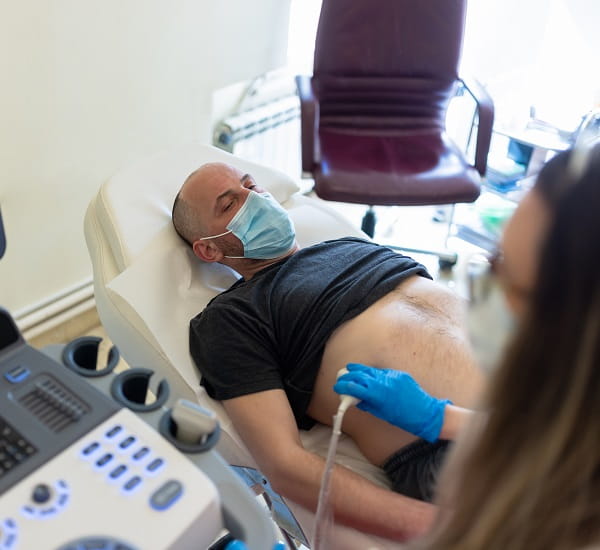
Nephrology Fellowship
Geisinger’s Nephrology Fellowship, which immerses you in an active transplant program, prepares you to succeed in any clinical or academic setting.
About us
Ion Dan Bucaloiu, MD, program director
Do you want to become a nephrologist and train in a state-of-the-art program in a diverse community with faculty dedicated to your success at a world-class health system? Geisinger’s two-year Nephrology Fellowship is for you.
Our program, based at Geisinger Medical Center, will provide you with comprehensive training in clinical and academic nephrology. Whatever your career goals are in the field of nephrology, we can help you reach them. Our fellow graduates have an excellent success record on board exams, and practice in a variety of settings.
Our nephrology fellows are exposed to all aspects of general nephrology and transplant nephrology. As our nephrology fellow, you’ll train in a learning environment balanced among inpatient rotations, outpatient clinics and dialysis centers, didactic conferences, workshops and lectures, and research.
Our program distinguishes itself by attention to fellow well-being, a balance between inpatient and outpatient experiences and innovative teaching methods such as simulation, standardized patient programs and case-based learning.
By the end of your training, you’ll be competent in all aspects of inpatient and outpatient nephrology, including transplantation and acute and chronic dialysis therapy. The robust home dialysis curriculum in your second year will guarantee your competence in prescribing and promoting home dialysis therapies in your future career.
Our program’s board pass rate is above the national average. Many of our graduates enter clinical practice and academic nephrology, and some have pursued additional fellowship opportunities, including at Geisinger. Opportunities after graduation from our program include critical care, hospice and palliative medicine, and clinical informatics.
Outpatient rotations include:
- Nephrology clinic
- Transplant clinic
- Outpatient hemodialysis
- Home hemodialysis
- Peritoneal dialysis
Inpatient rotations include
- General nephrology consults
- Inpatient dialysis service
- Transplant service
Our department has a strong culture of research and innovation, and faculty will mentor you in conducting original research. You’ll have a dedicated research rotation, and we’ll collaborate with you to submit your research for presentation at national conferences and for publication in major journals.
We sponsor H1B visas for foreign medical graduates. We also accept exceptional foreign medical graduates who haven’t completed an ACGME approved internal medicine program on a case-by-case basis.
We hope you’ll join us.
About Geisinger
Geisinger serves more than 1 million people in central and northeast Pennsylvania. We’ve been nationally recognized for innovative practices in quality, delivery models such as ProvenCare® and the use of an award-winning electronic medical record, Epic®. Our physician-led system has about 24,000 employees, including nearly 1,700 physicians, 10 hospital campuses, two research centers and a health plan with more than half a million members, all of which boost our hometown economies by $7.1 billion annually.
Location
Danville, Pa., is a unique and wonderful place to train. Opportunities for outdoor recreation are endless, the cost of living is low and traffic is almost nonexistent. We’re also close enough to Philadelphia, New York City and Washington, D.C., to make weekend getaways easy.
